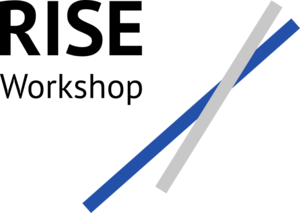Open Source AI: Strategic Motives for the Selective Revealing of AI System Components
Presenter: Leonard Hanschur (TUM)
Discussant: Ulrike Morgalla (MPI)
The recent open revealing of numerous AI systems challenges the notion that the exclusivity of an AI system’s data and model constitutes a source of competitive advantage. We explore the mechanisms behind revealing AI and the characteristics of AI systems associated with it. Specifically, we examine two dimensions of the selective revealing of AI systems: Its completeness, describing which components are revealed (none, the model, or model and data), and its degree determined by the license type (proprietary, restrictive, permissive). Employing a mixed-methods approach, we draw on 24 interviews with decision-makers at AI-focused organizations and prior theory to construct hypotheses that we empirically test on a sample of 659 AI systems. We hypothesize, and find supported in the data, that organizations tend to reveal larger and more innovative models to a lesser degree and less completely. Further, we find that data modality shapes revealing completeness, and that model size moderates this association. These findings suggest, in line with our qualitative findings, that revealing AI system components serves to promote their adoption and to establish a lock-in across AI system versions rather than collaborative development. Our study contributes to the academic discourse on open innovation and competitive advantage. For strategists and policymakers, we provide guidance in navigating their pathways toward opening AI.
Strategic Reserves: Shelved Innovation as a Real Option
Presenter: Elisabeth Hofmeister (MPI)
Discussant: Denzel Glandel (ISTO)
I investigate the role of shelved innovation - R&D projects suspended despite promising results - in firms’ strategy, drawing on evidence from the pharmaceutical industry. Initially, I construct a novel dataset linking clinical trials to their published results, enabling the systematic identification of shelved drug development projects. Using the exogenous nature of trial failures, I evaluate whether firms restart shelved projects following project failures in the same market. The results show that firms restart shelved projects in response to late-stage failures in Phase III clinical trials. Further, I find that the decision to restart is moderated by the thickness of the market for technology and the firm’s level of co-specialized complementary assets. Overall, these findings demonstrate that shelved innovation is not merely an incidental byproduct of the R&D process but a strategically managed asset.
Selective Promotion of Complements on Online Auction Platforms: Evidence from the Automotive Industry
Presenter: Alexey Rusakov (ISTO)
Discussant: Tim Hahne (TUM)
Platforms can steer demand by selectively promoting complements in platform markets. But how does selective promotion affect the overall demand when the products are idiosyncratic, such as on auction platforms, and does this effect differ for similar products and a competing platform? By studying a car auction platform with unique cars, we find that promotional car reviews on YouTube positively affect the prices and bid volumes of reviewed cars in the same category. However, the latter effect is largely due to short-term attention spillovers, while the sentiment of the reviews can have unexpected consequences for the bid prices. Moreover, the effect on the competing platform is rather limited and probably only occurs when users first visit the focal platform and then switch to the competing platform.
Ansprechpartnerin: Elisabeth Hofmeister


